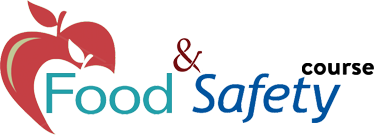The extent of the burden of foodborne illnesses in the world is still unknown, with so many factors and cases to consider when creating a formal database on the issue. One of the many ways to prevent foodborne illnesses is to raise awareness and educate people about the important of Food Safety Training in Nanaimo. The FOODSAFE program in Nanaimo, British Columbia was created with that in mind. Targeted towards food service workers, both first-line food handlers and management staff, FOODSAFE training stresses the importance of keeping food establishments safe for both the workers and consumers.
The BC Public Health Act: Food Premises Regulation
The law (or specifically a health act), that governs FOODSAFE training is the act the regulates food establishments in Nanaimo. It requires all food establishments, including restaurants, groceries, delis, etc., to have at least one employee trained in FOODSAFE present during every shift. The employee can be a first-line food service worker or a member of the management staff, such as the owner or manager. The act also specifies other important details for owners of food establishments, such as information regarding permits and the structure of the building.
Training at for Food Safety Training in Nanaimo
FOODSAFE training at Nanaimo First Aid is available in two levels plus a refresher class.
- Level 1 – This FOODSAFE course is 8 hours long, and can be taken in a classroom, online, or correspondence set up. It is targeted for staff members who handle food directly, such as servers and cooks. The course curriculum covers food storage, preparation, service, and work safety. This course is a prerequisite for level two FOODSAFE training. ($110)
- Level 2 – This FOODSAFE course is 12 hours long, and can be taken in the same set ups as the first level training. It is targeted towards management staff, or people in charge of planning and overseeing the establishment and the first-line service workers. The focus of level 2 curriculum is general work, produce, and service safety. ($165)
- Refresher – Refresher courses focus more on the essentials of FOODSAFE level 1 training, targeted towards workers who need to renew their training credentials. It is 3 hours long.
Note: By correspondence training is priced differently, costing $85. It needs to be completed in six months, but a 2 month extension can be requested (for an additional $25). Correspondence training is preferred by students who are working and have difficulty finding time for virtual (online) or face-to-face classroom setups.
Did You Know?
Diarrhea is the most common and most dangerous complication of foodborne illnesses. The sudden loss of water and electrolytes from frequent passage of stool can be lifethreatening to victims who are very young, such as infants, or very old, such as geriatric patients. The symptoms are easy enough to handle at home, especially if you don’t belong in either extreme age groups.
But when should you visit the hospital or emergency room?
- Diarrhea lasts more than two days
- Severe dehydration – manifested by excessive thirst, dry mucous membranes and skin, little to no urine output, dark colored urine
- Changes in level of consciousness
- Severe abdominal/rectal pain
- Blood in the stool (either bloody or black in color)
- Very high fever (39 degrees Celsius or higher)
